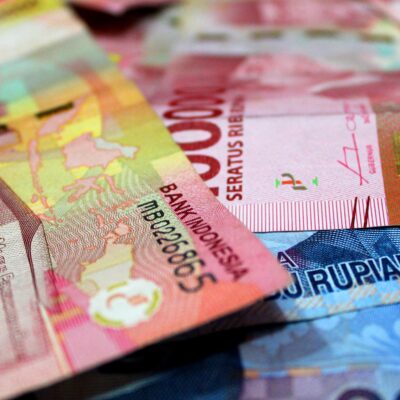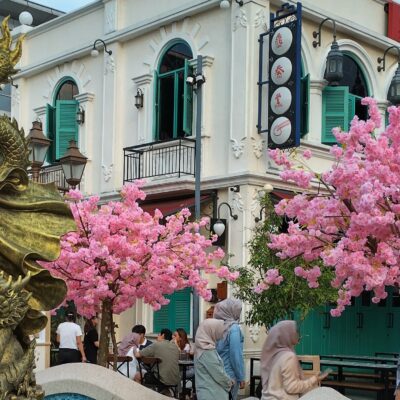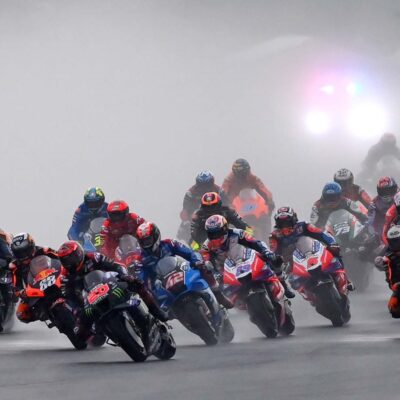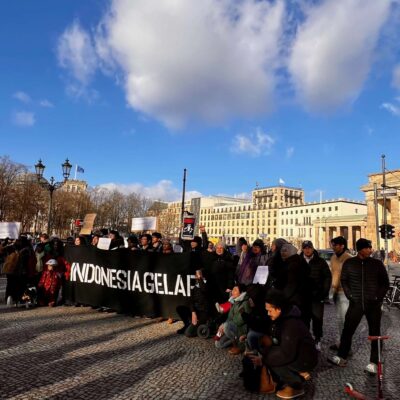Indonesia’s presidential election on February 14 has come to be seen by some as the most flawed since 1998, when the authoritarian government of President Soeharto ended amid political unrest and violence.
The official announcement of the real count results is expected on March 20, but Prabowo Subianto is expected to be the winner from informal tallies, known as the quick count. Prabowo a General from the ‘New Order’ era was allegedly involved in human rights abuses in East Timor, Papua and Jakarta in the final years of the Soeharto presidency. He’s also the son-in-law of the former President.
Under Soeharto, the exercise of basic rights such as academic freedom (along with many other), were severely limited by the military through intimidation, censorship, surveillance, and imprisonment. Critics of the government, such as scholars and students who played a key role in the reform movement, were among those targeted by the government.
In many ways, the New Order ‘continues to live and breathe within Indonesian democracy’. Recent years have seen the ‘creeping new despotism’ of the administration of Joko Widodo (Jokowi), with political elites weakening democracy, such as undermining the power of Indonesia’s Corruption Eradication Commission (the KPK) and influencing voters through social media.
At the recent election, Prabowo’s win was facilitated by several direct political interventions by the Jokowi government which supported the Prabowo campaign for president, says Dr Wawan Mas’udi, the Dean of the Faculty of Social and Political Sciences, Gadjah Mada University.
One such intervention was a “controversial last minute electoral regulation change by the Constitutional Court, allowing Gibran, a son of Jokowi, to run as Prabowo’s vice president,” said Dr Wawan Mas’udi. In addition, in the lead-up to the election, Jokowi’s party organised the massive distribution of social assistance (bansos) such as rice or cash handouts, along with directions to vote for Prabowo; as well as the extensive use of social media such as TikTok videos to remake Prabowo as ‘cuddly’ (gemoy) ‘cuddly’ to young people (the largest ) who have no strong memory of the political misery of 1998, said Dr Wawan Mas’udi.
Dynastic and family politics has become ‘normal’ in Indonesia and the remaining hope for advocating democracy is Indonesian civil society, including critical academia, the freedom of the press and socio-cultural activists, said Dr Wawan Mas’udi.
Some critics have been vocal. A film featuring three scholars were featured in a new film, Dirty Vote, claiming election fraud during the 2024 elections. Several civil society groups, including Amnesty International and the National Human Rights Commission have alleged election fraud before, during and after voting.
However, critical academia in Indonesia has been ben hugely undermined over recent decades, says Dr Inaya Rakhmani, Director of the Asia Research Centre, Universitas Indonesia, who believes that scholars are mostly complicit with power structures, even if they are not conscious of it.
“What we have learned over the past 20 years is that instead of having a coherent academia on campus allying with civil society, those closest to power in academic and civil society seemed to be subsumed into elite power struggles. Academics have become part of ministries or have become consultants, and in turn the means to sanitise a history of human rights violations to create an alternative cultural memory,” said Dr Rakhmani.
Dr Wawan Mas’udi agrees: “If you talk with most academics in Indonesia the most successful measure is not only about how you can convince people with discourse and writing, but also with the administrative power you have. They have a justification that if they take a particular role they can do better than politicians. It is just like the beginning of the New Order in the 1960s. Who supported Soeharto at the time? Academia.”
“I would not recommend speaking for power or against power in public setting unless you are really aware of the fact that either you could be co-opted or persecuted in the next five years,” said Dr Rakhmani. “I would like to paraphrase Indonesia scholar Dr Max Lane’s statement that academics in Indonesia are either ‘compliant with power structures, stifled or in jail’”.
Image: A small group of people sitting outside the library at Universitas Indonesia. Credit: Mohamad Sani/Flickr.




